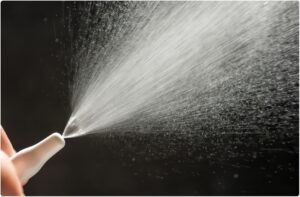About Povidone-Iodine Nasal Spray Side Effects
There are a number of povidone-iodine nasal-spray side effects. Although the drug is a broad-spectrum antiseptic, it is not a cure for SARS or other respiratory diseases. However, it does reduce the viral load in patients with COVID-19. To find out if it works, a study was conducted on 12 people. Twelve of them were given a 1% solution into the nostrils four times per day for five days. In the study, they were also instructed to apply 10% of the ointment into the nostrils.
While the product is widely used to treat the symptoms of SARS, the risks of this drug are minimal. Some side effects include irritation and pain in the eyes, while the most serious ones are associated with an allergic reaction. The latter can cause trouble breathing, chest tightness, dizziness, hives, and swelling of the face, lips, and mouth. These side effects may be mild or severe, depending on the patient’s level of sensitivity.

Nevertheless, there are some potential side effects of 1% iodine nasal spray protocol. Large amounts should not cause problems, although contact with the nasal spray can lead to discomfort. Accidental ingestion of this medicine can also cause gastrointestinal upset. For this reason, people are increasingly turning to povidone-iodine nasal suppositories instead of vaccinations. Even though vaccines are more effective and have strong scientific support, many people opt for this drug.
Know the Details About Povidone-Iodine Nasal Spray Side Effects
Although the risk of ingestion of povidone-iodine is low, it is possible to experience allergic reactions, including skin irritation, inflammation, and rash. A few people may experience difficulty breathing, or even a severe allergic reaction, in which case they may experience difficulty breathing, hives, and swelling of the face, lips, and mouth. This medication can cause these symptoms, but they are not common.
Using povidone-iodine nasal suppositories can cause an allergic reaction. This medicine is effective against SARS-coV-2 infection but there are many other side effects of povidone-iodine. The drug is commonly available in liquid, cream, or aerosol powder form and can be applied to the skin as needed. Despite these risks, it is not a cure for SARS.
There are several side effects associated with povidone-iodine nasal suppositories. These include itchiness, fever, and rashes. Symptoms of severe allergic reactions are very rare. Most people will experience minor irritation or discomfort after using the product. They may also experience a temporary sense of numbness or headache. But the most severe side effects are very rare.
Compared to other types of antibiotics, povidone-iodine nasal suppositories are not particularly dangerous for human health. Some of them have side effects but can be fatal. Therefore, it is important to choose the right medication before starting treatment. If you suffer from allergies, consult your doctor or a doctor before taking any antibiotics. You must also be aware of any allergies before using any products.